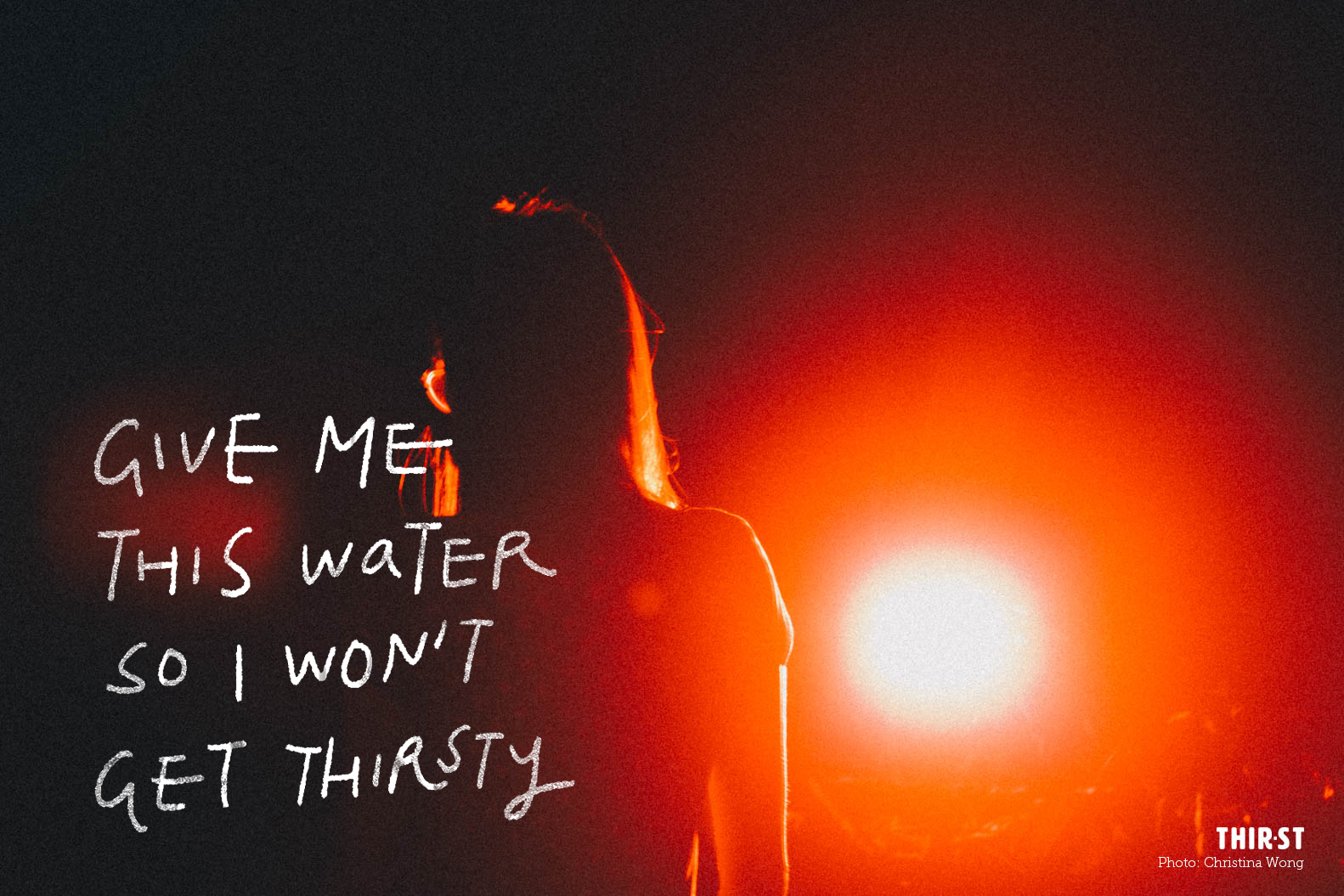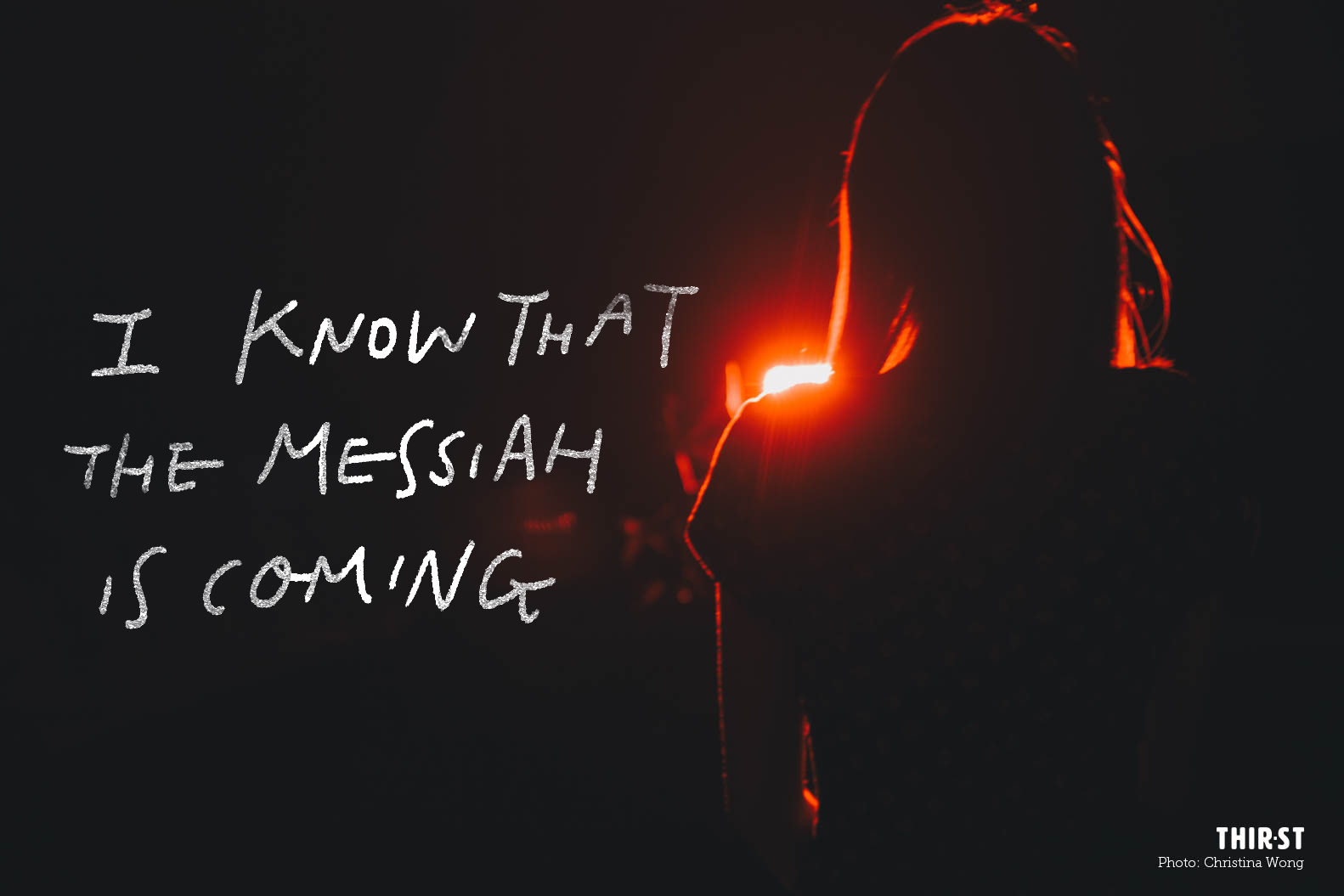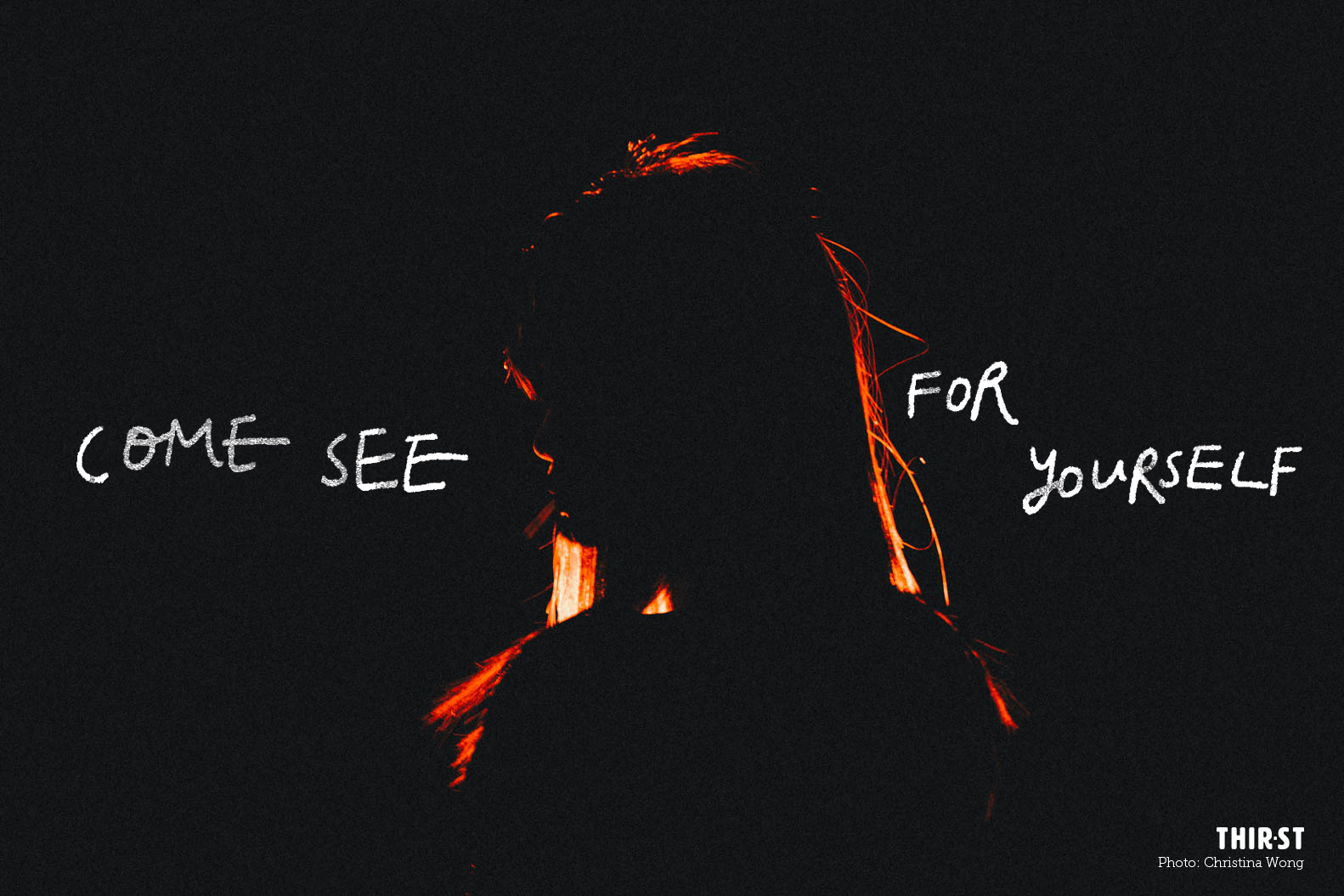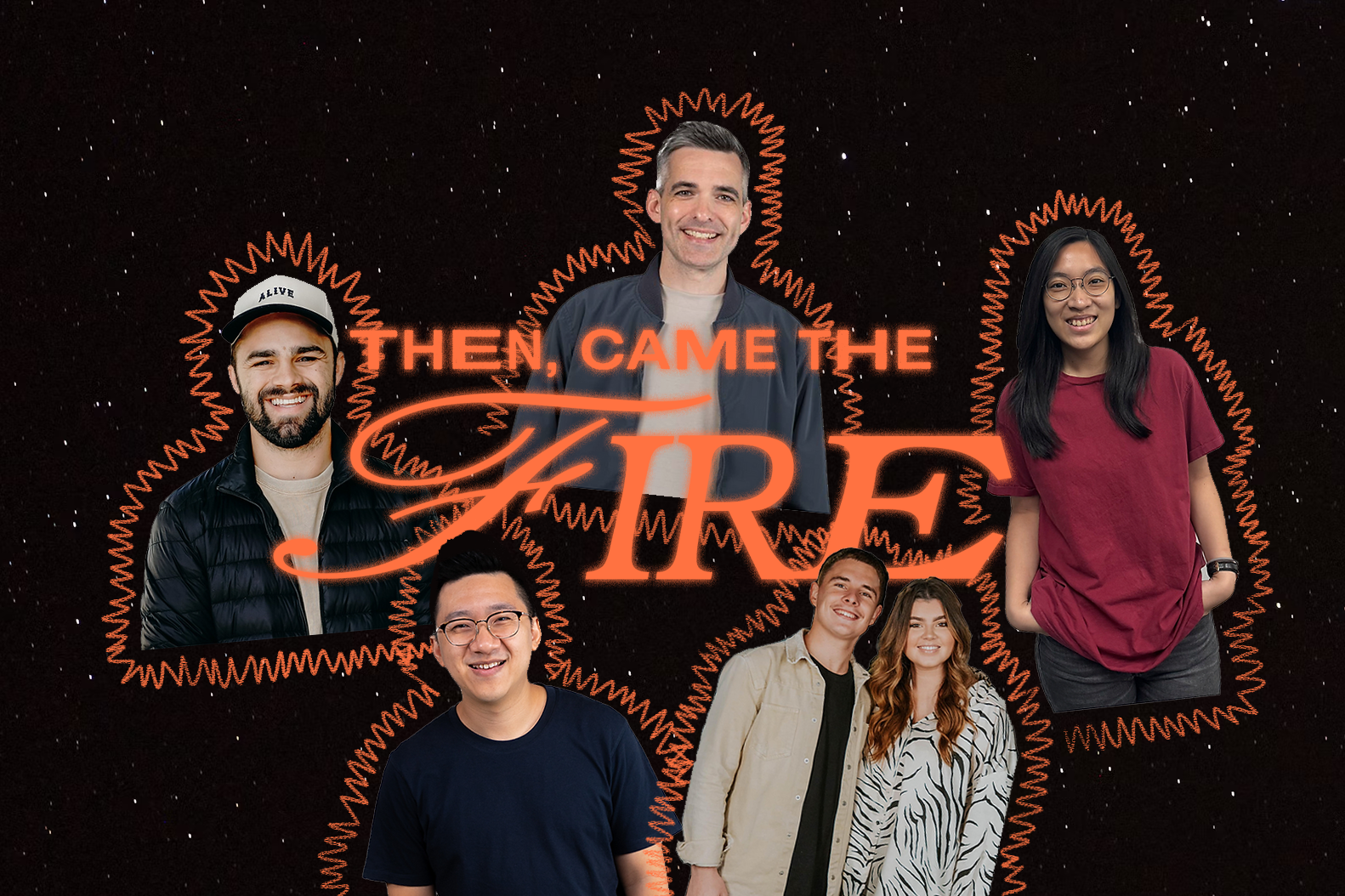I’ll just get some water and go, I reasoned to myself. It won’t take long.
Ever since the rumours started, I found it difficult to go anywhere. Noon wasn’t the best time to head out of the house, the scorching sun high overhead, but at least the chances of meeting someone I knew were near zero.
Most times they stared, sometimes they gestured to their companions – but the worst was always the murmuring. By now I think I’d heard everything. Look, it’s that woman. If I were her I’d rather be dead. Jinx.
It was difficult to keep their accusations out. I used to go home and cry myself to sleep. Then a time came when I’d feel nothing but bitter rage. These days, I just avoided the public eye as much as I could. It was just so much easier.

“Almost there,” I muttered under my breath, as I willed my feet to move.
A trickle of sweat dripped from my chin into the water jar I was hugging with my arms. I was about to reach the well when I saw the silhouette of a man. He was sitting against the well.
I paused. It was a strange sight to see someone at the well in the middle of the day. Should I still go ahead? I didn’t really want to risk putting myself in the firing line again, but I really needed the water. Besides, I’d come this far …
“I’ll just get the water and go,” I eventually convinced myself.
I tightened my grip on the water jar. Ignoring the man’s presence, I inched towards the well cautiously, hoping he would let me retrieve my water peacefully.
He didn’t.
“Will you give me a drink?” he asked when I approached the well.
Surprised by his question, I turned to look at him for the first time.
A Jew.

His question confused me. Jews hated Samaritans like me. They think we’re half-breeds, impure, and accursed. I know because they’re not afraid to tell us – loudly.
“You are a Jew and I am a Samaritan woman,” I replied carefully. “How can you ask me for a drink?”
“If you knew the gift of God and who it is that asks you for a drink, you would have asked him and he would have given you living water.”
I looked at him incredulously, unsure of what he was talking about. It seemed as though he was insinuating he had some supernatural powers, and that I should be asking him for water. But as I glanced at his hands, I saw he had nothing on him. No jug, no pail, no wineskin. Nothing.
“Sir,” I said, “you have nothing to draw with and the well is deep. Where can you get this living water?”
Then it struck me: Maybe he has his own well? So I quickly added, “Are you greater than our father Jacob, who gave us the well and drank from it himself, as did also his sons and his livestock?”
He smiled, “Everyone who drinks this water will be thirsty again, but whoever drinks the water I give them will never thirst. Indeed, the water I give them will become in them a spring of water welling up to eternal life.”
I knew it! He’s got his own source of water! If I have access to his water, I will never thirst, never have to come back here to this accursed well, never have to face the stares and questions I always get just so I can get some water.
I pleaded, “Sir, give me this water so that I won’t get thirsty and have to keep coming here to draw water.”
“Well then, go call your husband and come back,” he instructed.
I blinked. I hadn’t seen that coming.
“I have no husband,” I finally managed to say.
“You are right when you say you have no husband,” the man replied, “The fact is, you have had five husbands, and the man you now have is not your husband. What you have said is quite true.”

Who was this man, who could know the things no one should know?
I began to survey the man and saw him in a new light.
For example, the way he looked at me. People usually avoid eye contact, as though I’m some kind of leper. But as he looked straight into my eyes, I could see there was no contempt, no judgment. No condemnation. Yet his voice was firm and authoritative.
He had answers. I had questions.
“Sir, I can see that you’re a prophet. Our ancestors worshipped on this mountain. But you Jews claim that the place where we must worship is in Jerusalem.”
Actually, what I really wanted to know was why he was here. At the well. In the middle of the day. With no water jug.
If he truly were a prophet, why was he at this mountain and not in Jerusalem?
And why was he talking to me?
“Woman,” he addressed me. “Believe me, a time is coming when you will worship the Father neither on this mountain nor in Jerusalem. You Samaritans worship what you do not know; we worship what we do know, for salvation is from the Jews.
“Yet a time is coming and has now come when the true worshippers will worship the Father in the Spirit and in truth, for they are the kind of worshippers the Father seeks. God is spirit, and his worshippers must worship in the Spirit and in truth.”
It was the first time I heard anything like that. Since the time of Moses, our ancestors have been worshipping on mountains.
The man seemed to be onto something.
Unsure of what to say, I stammered, “I know that the Messiah is coming. When he comes, he will explain everything to us.”
“I the one speaking to you – I am he.”

I nearly dropped my water jar. Questions flooded my mind, but I was too tongue-tied to ask anything.
Was I truly looking into the face of the Messiah? The Son of David we’ve been waiting for? The Saviour of the world?
I barely registered a group of men approaching the well. All I could think was: I NEED TO TELL SOMEONE ABOUT THIS!
Leaving my water jar at his feet, I turned and started to run.
I ran as fast as my legs could carry me. I reached the town breathless and panting. People stared at me, probably thinking I was a lunatic, but I couldn’t care less. They’ve thought worse of me.
“This man!” I heaved in the middle of the marketplace, “This man – He told me everything I had ever done!”
Startled by my shouts, a crowd slowly started to gather around me. I tried to spit the words out as fast as I could, but I couldn’t. I hunched over, trying to gather all the breath and energy I had left, and with all the might I could muster, I shouted, “Could he be the Messiah?”
A sudden silence enveloped the crowd. People began to look at one another as though they couldn’t believe what they’d just heard. I began to tell of how this man, a stranger, knows me. I described how he told me of my past, and my present. And how he knew the future too.
If the man truly is who he says he is, then I know what the future looks like: Hope.
I have hope because he didn’t shun me, a Samaritan.
I have hope because he willingly spoke to me, a woman.
I have hope because I know the Messiah will accept even me, a sinner.
I drew a deep breath. Looking at the crowd squarely into their eyes, I declared the soft, undeniable truth that had settled in my heart:
“He’s the Saviour of the world. Now come see for yourself!”
This is an adapted account of Jesus’ encounter with the Samaritan woman at the well, taken from John 4:1-42.









